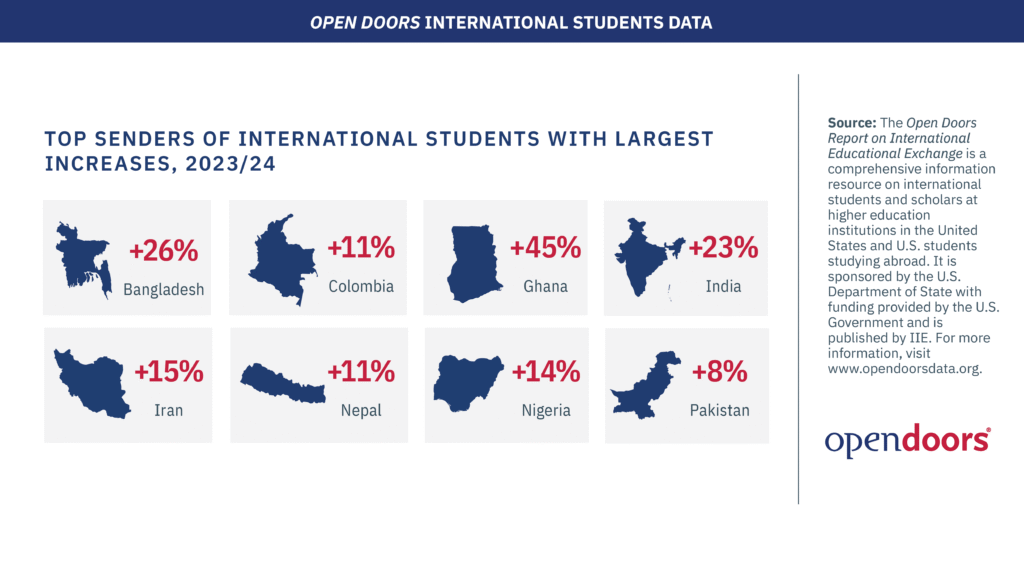Nigeria’s international student population in the United States soared in the year ending 2024, securing the country’s position as the seventh largest source of international students globally and the leading contributor from Africa.
This official statistic was unveiled in the 2024 Open Doors Report on International Educational Exchange, underscoring the impact of the recent US decision to cut visa validity period for Nigerians seeking non-immigrant visa to three-month, single entry. International education is currently rocked by the decision as study visas are categorised under non-immigrant visa.
Published by the U.S. Department of State’s Bureau of Educational and Cultural Affairs in partnership with the Institute of International Education (IIE), the report revealed a 13.5% increase in Nigerian student enrollment from 2023.
Also, the 2024 Open Doors Report, revealed that the United States hosted an all-time high of 1,126,690 international students in the 2023/2024 academic year, a 7% increase from the previous year. Nigeria’s international student population accounted for 20,029 of this population figure.
Also, the report revealed that Nigeria’s international student population growth of 13.5% from 2023 reflects a steady upward trend, with Sub-Saharan Africa as a region posting a 13% increase in student numbers, the highest growth rate among all world regions for the second consecutive year.
Nigeria’s rise to the seventh spot globally places it alongside powerhouses like India (331,602 students), China (277,398), South Korea (43,149), Canada (28,998), Taiwan (23,144), and Vietnam (22,066).

Reacting, to the development, a U.S. Consulate in Nigeria press release said: “Nigerian students bring a wealth of diversity, perspectives, and academic excellence to U.S. universities, enriching the educational experience for all students.”
The Open Doors Report also revealed the broader trends in international education. Graduate student enrollment saw an 8% increase, reaching 502,291 students, while Optional Practical Training (OPT) participation surged by 22% to 242,782 students.
Undergraduate enrollment remained stable at 342,875, with a slight 1% decline, and non-degree programs saw a 12% drop to 38,742 students.
The report also highlighted that 56% of international students, including those from Nigeria, pursued STEM fields, with 25% studying math and computer science and 19% focusing on engineering.
The U.S. Department of Commerce revealed that international students contributed over $50 billion to the U.S. economy in 2023.





